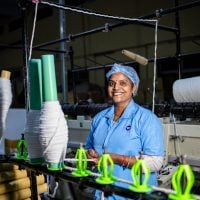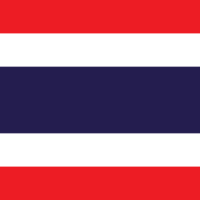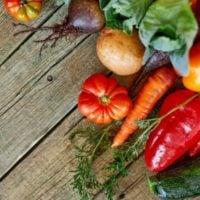Deadline: 26-Jun-20
The Canada’s International Development Research Centre (IDRC) has announced a new funding opportunity to advance the generation and use of context-specific evidence that will drive changes in food systems and enable healthy and sustainable diets in Eastern Africa.
Objectives
This funding opportunity is a means to establish new research collaborations and projects that can generate robust evidence for enhanced understanding of which policies and interventions promote greater market competitiveness of nutritious and sustainable food and contribute to healthier and more sustainable food systems.
Outcomes
Applications are encouraged to address topics relevant to at least one of the following outcomes:
- Public policies, driven by scientific evidence, which increase the affordability and accessibility of protective foods relative to unhealthy, ultra-processed foods Possible topics of interest may include, but are not limited to:
- Research to characterize effective policy interventions (e.g. fiscal measures, trade policies, and other economic and structural interventions) that increase the affordability of protective foods relative to non-protective foods
- Research to promote greater equity and coherence in public policies to deliver benefits to environmental sustainability, greater population health, and inclusion and health equity of women, low-income populations and other vulnerable groups
- Research on the economics of protective vs non-protective foods (including price and income elasticity, consumer willingness to pay, and a true costing of food which incorporates health and environmental sustainability impacts)
- Research on retail and market structures, urban design and community infrastructure, food supply chains, and food provisioning mechanisms (including public procurement systems) and their potential to increase the accessibility and availability of protective foods
- Research to integrate health, nutrition and environmental considerations into food consumption indicators (such as food composition tables and food-based dietary guidelines)
- Research on the environmental and economic impacts (including co-benefits and tradeoffs) of protective foods, particularly on different population groups
- Enhanced rules, conditions, dynamics of business environments which shift the behaviours of markets towards the production and consumption of affordable protective foods Possible topics of interest may include, but are not limited to:
- Identify policy levers or market policies that promote and enable local and regional businesses to develop and/or invest in value chains that deliver affordable protective foods, particularly to vulnerable groups.
- Characterize the impacts of business models and practices on vulnerable groups (including women, girls, low-income populations) and environmental sustainability goals.
- Identify community innovations (e.g. Stokvels), business models (e.g. healthy food cooperatives, certification systems, etc.), and value chain approaches, as well as their barriers and enablers, to promote the supply of protective foods particularly to vulnerable groups
- Explore innovative technologies and processes (including climate-smart innovations) that can improve the efficiency and relative market competitiveness of protective foods.
- Empowerment of consumers and civil society groups which generate greater local demand for affordable and sustainable protective foods and promote effective and accountable public policies Possible topics of interest may include, but are not limited to:
- Research to understand LMIC populations and their experiences with their food environments, describing the root drivers of their dietary patterns including sociocultural factors that enable or hinder consumption of protective foods.
- Explore different modalities of promotion, advertising, behavioral nudges, and information/education related to protective foods and their relative cost-effectiveness.
- Map and support local voices, civil society organizations, community platforms, and other social movements to create market demand and public policy accountability for protective foods.
Funding Information
Budget: Between CAD$300,000 and $1M per project. Grants will be awarded subject to the availability of funds.
Duration
Duration of research grants: Between 12 – 36 months.
Geographic Focus
Geographically, the initiative will focus on five countries in Eastern Africa (Ethiopia, Kenya, Rwanda, Tanzania and Uganda) where the burden of food-related NCDs is on the rise, undernutrition persists, and where there is a significantly high vulnerability of agricultural and food systems to the impact of climate change.
Eligibility Criteria
- The lead applicant organization must have a legal corporate registration in an eligible LMIC country and must be legally eligible to conduct research in any of the five countries of focus – Ethiopia, Kenya, Rwanda, Uganda or Tanzania. The lead applicant must also be a citizen or permanent resident with a primary work affiliation in an LMIC.
- International organizations (except United Nations organizations and members of the Consortium of International Agricultural Research [CGIAR]) are eligible to apply as co-applicant organizations (developing country collaborators), provided that they have regional chapters or offices with appropriate legal status to operate and manage funds in the five eligible countries where the research will take place. United Nations organizations and CGIAR centers receive significant Canadian funds via other funding windows and shall not apply to this Call as applicant organizations. They may, however, be included in applications by lead applicants as third-party organizations or consultants. IDRC will only negotiate funding agreements with the lead applicant organizations of selected proposals. These lead applicant organizations will negotiate and develop funding arrangements directly with third-party organizations for specific services.
- IDRC will not contract directly with third-party organizations. Applications that involve third-party organizations must clearly justify their involvement and explain their role(s). Note that third-party organizations are not required to be located in the eligible countries. The guideline for total third-party participation in a project remains a maximum of 20% of the budget.
For more information, visit https://www.idrc.ca/en/funding/catalyzing-change-healthy-and-sustainable-food-systems









































